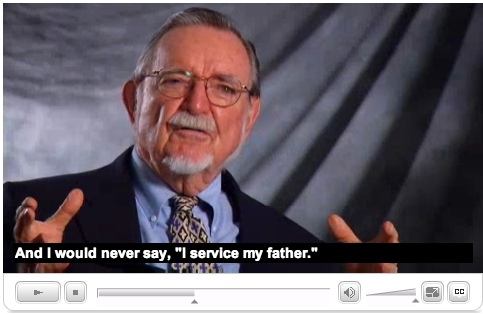As we are developing this series on community development, at some point it’s time to start wondering about the impact this all has on the inside of an organization.
Institutions will try to preserve the problem to which they are the solution.
(Clay Shirky)
We need to be clear about the difference between an organization and a community. This is where the insights of John McKnight come in. He specializes in ‘community development’ and ‘capacity building’ – two terms I am only beginning to understand…
Here is a video in which McKnight explains why services cannot deliver well-being.
I’d like to throw in two distinctions right there.
- The goal of an organization is to service its clients at the best possible ‘service’ level (be it in terms of operational excellence, product leadership or customer intimacy). A service is something you pay for. It is retribution-based;
- A community is capable of producing ‘care’. You cannot pay for care. Care is a commitment from the heart from one person to another.
To take a short excerpt of the above video:
A service is something you pay for. Care you can’t pay for. When I say, “I care for my neighbor, I care for my wife, I care for my father,” that’s a freely given commitment from the heart of one person to another. And I would never say, “I service my father.” Service is not care. It is a paid activity, that is different from care.
My doctor I pay for a service called medical care. But my community is the place where their mutual care has most to do with my health. So what has happened, I think, over these two generations is people have begun to think they could buy what care used to provide, so that now, instead of the village raising a child, we outsource our children, and we pay people to raise them.
So more and more a great illusion, I think, has developed, and that is that systems, service systems can produce care. They can produce a university like the one I’m associated with. It can produce education, but it can’t produce care. Care is a community relationship word.
So that I think a lot of people think that managed care is perfectly reasonable. There is as much managed care as there are purple cows. Managed care. What care is; is the thing that will never be managed, it is the freely given commitment from the heart of one person to another, and that above all can’t be managed. It can be given, it can grow from connection. It can grow from knowing what a neighbor really is. But no system ever produced care.
Let’s bring this back to our context of organizations. Much has been said about trust, empowerment and the flattening of organizations. Those are all characteristics we attribute to communities. What’s more, with the recent popularity of social media, we see that technology is no longer an excuse for not tearing down organizational silos.
However, our organizations are not delivering on the promise of flattening or empowerment, because they are built on the premise of retribution. This is a roadblock we will need to remove. Is there any way we can unlearn retribution and bring care into our organizations? It seems like the very thing that preserves an organization is preventing it from becoming more human…



Pingback: Getting Serious about Community Development (Part 8) | Reply-MC()